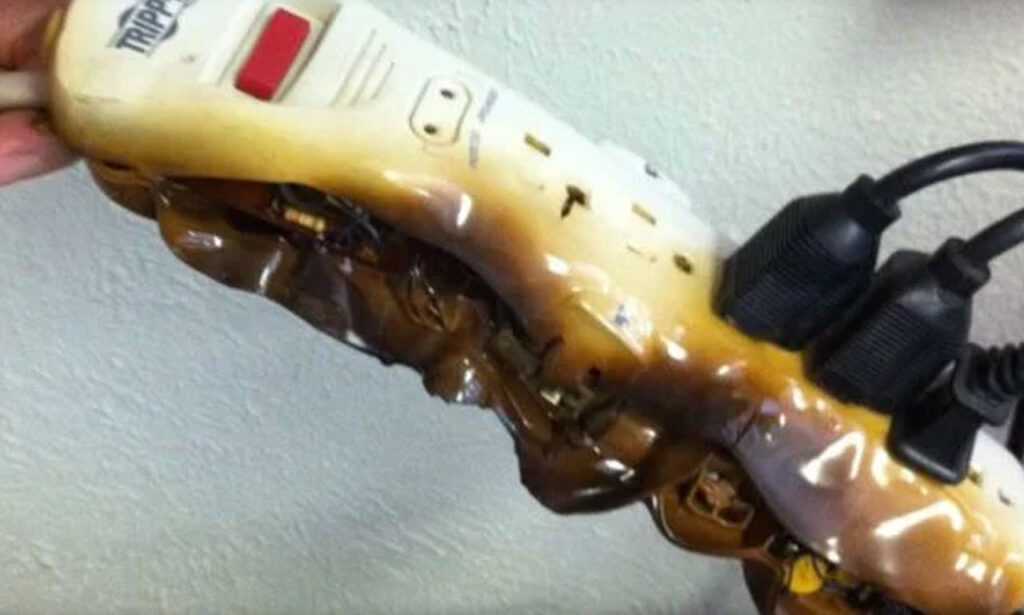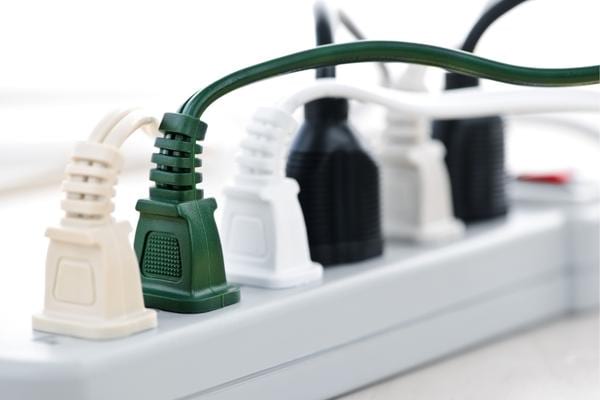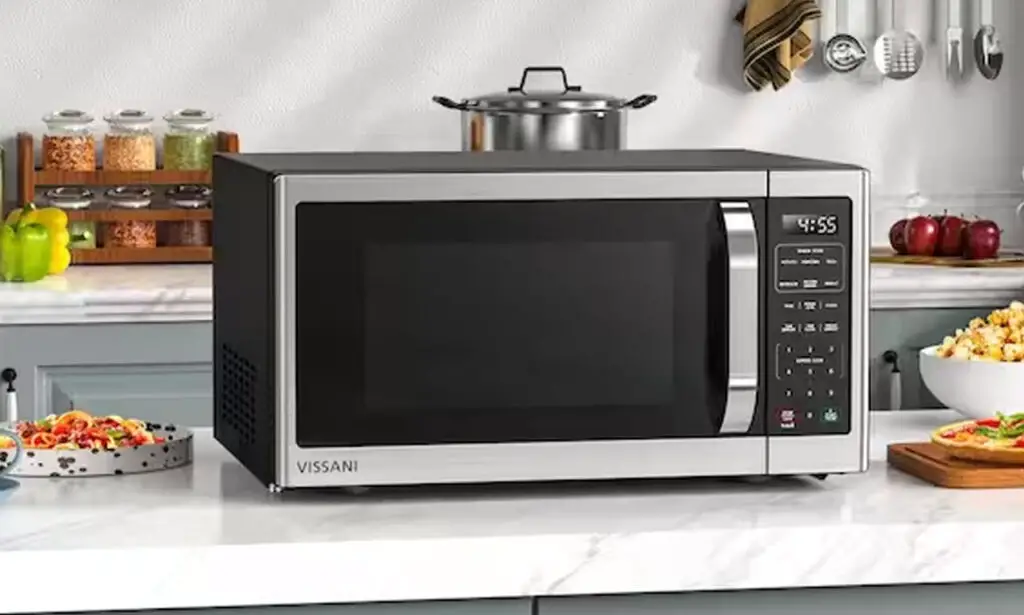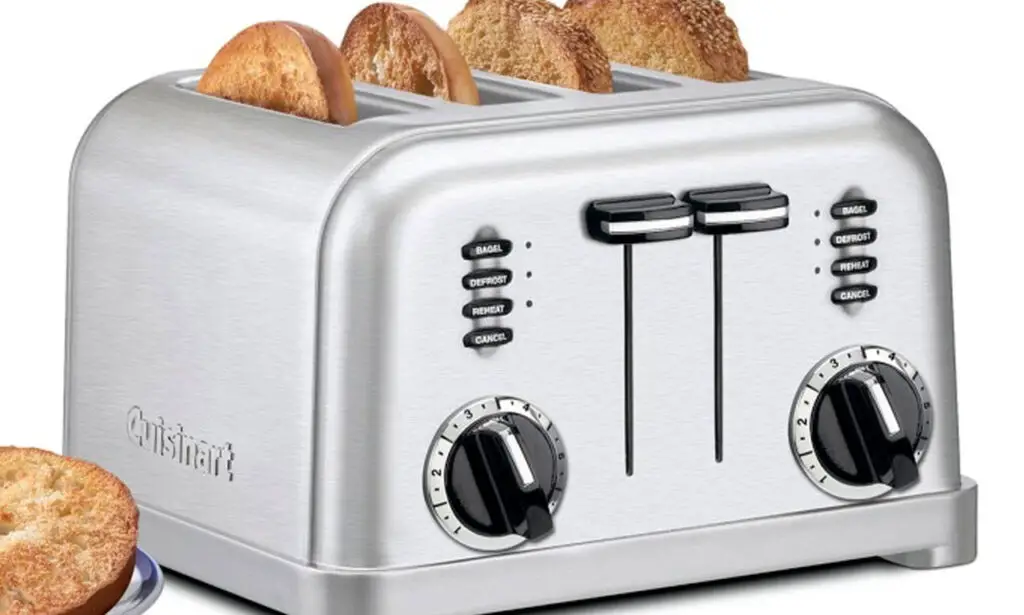
When we think of the past, one of the first thoughts that runs through our mind is how people lived without electricity. Nowadays, we can’t even imagine a day without it because all of our appliances and devices run on electricity.
The truth is, however, that most homes don’t have enough power outlets to keep everything running and charged, so most of us rely on power strips without being aware that appliances that consume a lot of energy become dangerous fire hazards when we plug them into a power strip.
Although power strips are the thing to go to when it comes to charging your phone or power an entertainment setup, there are certain devices that should never be plugged into a power strip.
Air conditioners, space heaters, toasters, and other appliances that use high wattage can easily cause power strips to overheat, which can easily lead to a fire hazard.

Even before plugging anything into a power strip consider the ammount of power they support. This is usually listed on the product itself.
High-capacity appliances need to draw a lot of power through an electrical circuit to work. Keep in mind that an appliance does not need to be large in size to draw large amounts of power.
Below is the list of appliances that should never be plugged into a power strip.
1. The oven: Even though the oven is not used continually, it is a power-hungry appliance that should not be plugged into a power strip. In fact, it should be plugged into its own wall outlet on its own circuit.
2. Refrigerator: Refrigerators require a lot of power and frequently cycle on and off which can easily overload a power strip and cause damage. Much like the oven, refrigerators require a wall outlet dedicated solely to powering the appliance.

3. Washing Machine: When turned on, washing machines pull a lot of power. This is the main reason why these appliances shouldn’t share a receptacle with any other appliance or device.
Most washing machines use a max of up to 1400 watts, putting it dangerously close to the max load of most power strips. On top of that while working, washing machines are usually left unattended and work longer hours, at least an hour, which is long enough for a power strip to overheat.
4. Heating: Portable heaters should never be plugged into a power strip because most of them use 1,500 watts of energy on their high setting and they usually run for extended periods of time.

5. Microwave: Since they consume a lot of energy when used, most microwave ovens are plugged into their own receptacle and that is always a good practice.
6. Coffee Maker: Those who own a coffee maker are not fully aware of the power these appliances use, and this is why they should never be plugged into any sort of power strip or extension cord.

7. Toaster: You may think that browning up slices of bread or bagels doesn’t require a lot of energy, but the truth is that toasters use a lot of energy when in use and they should be plugged directly into the receptacle rather than a power strip.
8. Another Power Strip: Power strips are not meant to be used in conjunction with another power strip, although many people do exactly that. This, however, violates most safety codes because it can easily lead to overloading the electrical system.
9. Electronics (Computer, TV, Router): These types of electronic devices don’t necessarily use a lot of power on their own, but they are sensitive to surges and you can find yourself with a burnt out computer or TV very quickly if you plug them into a power strip.
If you want to protect these sensitive devices from power surges, opt for a power strip that functions as a surge protector.
My Husband Took This Photo of Me Just Before I Threw My Rings: I Learned a True Lesson in Life

This past Sunday, the day began with the promise of a beautiful morning on a boat cruise with my husband, Jack. We were basking in the sun, the gentle sway of the boat calming our spirits. Our conversation flowed easily, filled with laughter and shared memories. It was one of those perfect mornings that seemed to bring us closer together, making me appreciate our life and love.
But suddenly, the atmosphere shifted. Jack’s demeanor changed from light-hearted to serious. He took a deep breath, his eyes filled with a mix of regret and fear. “Baby, I’m so sorry,” he began, his voice trembling. “I have to tell you something. I’m so sorry, please forgive me. I had an affair.”
The Heartbreaking Revelation
Those words hit me like a tidal wave. My heart pounded in my chest, and I felt a surge of emotions – disbelief, rage, and an overwhelming sense of betrayal. I am not a confrontational person by nature, so I didn’t scream or cry. Instead, I stood up, numb with shock, and removed my wedding and engagement rings. With a swift motion, I hurled them into the vast, unforgiving ocean.
Jack’s reaction was instant. His eyes widened in horror, and his mouth fell open. “What have you done?” he shouted, his voice cracking. “It was a joke, a prank! I wasn’t serious!”
But it was too late. The rings, symbols of our love and commitment, were gone, sinking into the depths of the sea. My anger flared. “Because of your cruel joke, I’ve thrown away your family engagement ring!” I screamed back, tears now streaming down my face.

The Aftermath of a Cruel Joke
Jack’s face turned as white as a sheet. He started to panic, his breathing becoming erratic. “Do you realize what you’ve done?” he screamed. “That ring was a family heirloom, passed down through generations! It was irreplaceable!”
His words cut through my anger like a knife. The gravity of my actions hit me, and I felt a wave of regret. But the damage was done. There was no retrieving the rings from the ocean. I had acted out of blind rage and hurt, and now we both had to face the consequences.
The boat ride back to shore was a silent, tense affair. Jack was devastated, and I was left grappling with a whirlwind of emotions. Was it right to react the way I did? Did his prank justify my drastic action? These questions haunted me, and I knew that our relationship had been irrevocably altered.
Reflecting on Consequences
As we disembarked and made our way home, the silence between us was deafening. Jack’s shoulders were slumped, his face etched with pain and regret. I couldn’t bring myself to look at him. My mind was racing, replaying the events over and over.
That night, we sat down to talk. Jack apologized profusely, explaining that he never intended to hurt me. It was supposed to be a joke, a misguided attempt to lighten the mood. He admitted that it was a terrible mistake, one that he would regret for the rest of his life.
I listened, my heart heavy. I knew that forgiveness wouldn’t come easily. The trust between us had been shattered, and it would take time to rebuild. We both needed to reflect on our actions and understand the impact they had on our relationship.
Rebuilding Trust
In the weeks that followed, Jack and I sought counseling to help us navigate the fallout of that fateful day. It was a difficult journey, filled with painful conversations and soul-searching. But we were committed to healing and rebuilding our trust.



Leave a Reply